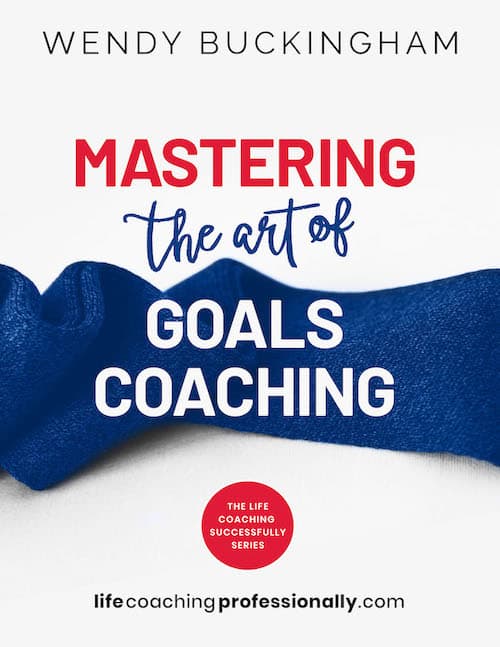Click here to subscribe to my free fortnightly Life Coaching Accelerators, for insider coaching tips.
- Life Coaching
- Coaching Tools
- "Firing" a Client
- Examples
How to Nicely Fire a Coaching Client
Fortunately, there haven't been many times I've needed to end a coaching relationship, but these two examples of how to nicely fire a coaching client made a lasting impression and taught me valuable lessons for the future.
For some really useful help if you need to leg go of a client I recommend you also read my page on How to Fire a Client.
In these two case studies:
- I learned to professionally and nicely fire a coaching client who was toxic and left me feeling drained after each session.
-
I handled a client who came to coaching under false pretenses.
Quick Links
Example 1: Authentically Wave Goodbye To A Toxic Client

When I found myself nearly in tears at the end of a phone session and dreading the next one, I knew something had to change.
This client had told me during our initial chat that he had worked with several coaches who couldn't help him. (That statement alone should have been a red flag, but my ego convinced me I could be the one to succeed.)
I quickly discovered that he was unwilling to do anything except criticize my coaching and invalidate my suggestions. Strangely, however, he still wanted to continue working (and arguing 😃) with me.
He was clearly uncoachable and toxic and was also undermining my confidence. Something had to change!
At the start of his next session, I told him that before we continued, I wanted him to try some of the exercises I had recommended—despite his doubts—and then get back to me.
He never did!
Help to Protect you From This Type of Toxic Client
This experience happened before I developed my unique, formal pre Discovery Session Questions for prospective clients. Since then, I’ve made sure to include this important question:
- "Have you been coached before?" If they say yes, follow up with:
- "How many times?"
- "How was it?"
- "Why did you move on?"
Their answers will help you determine whether you can truly help them or want to work with them.
Need to know what to say in a toxic client situation?
On this related page I cover in detail how to deliver my 3 favourite approaches when I have needed to "fire" a client .
They are:
- Option 1: I'd love to continue, but...
- Option 2: I’m not the best coach for you...
- Option 3: I don’t think I can help you further
Example 2: How I Dealt With a Client Who Requested Coaching Under False Pretences
This example of how to nicely fire a coaching client also happened in my early coaching days—before I developed my Discovery Session Questions to understand prospective clients and their reasons for seeking coaching.
This client was a psychologist and presented herself very well. (I was flattered that another professional wanted to work with me!)
But when it came to coaching her, something felt off, and I was confused.
She asked vague questions about setting goals or outcomes but wasn’t engaged or taking any constructive action between sessions.
When I firmly questioned her about this during our third session, she admitted that she didn’t actually want to be coached. She had heard about life coaching and wanted to experience it firsthand to see if she could use it with her clients.
Needless to say, I was a bit annoyed. I (nicely) suggested that instead of pretending she wanted coaching, she should have been upfront. Had she told me the truth, I would have advised her that unless she was willing to be genuinely coached toward a goal or outcome, I couldn’t help her—and that she should consider enrolling in a coach training program instead.
My lesson here was to ask prospective clients who, were vague with their answers during my Discovery Session:
- "Why do you want to be coached?" or
- "What do you hope to get from life coaching?"
I had to get a congruent answer to be confident that they were genuine and that I, and life coaching, could help.
A Way to Handle Client Caused Stress
In the course of coaching you may have a client who it turns out is at the effect of someone who, by their actions or attitude is toxic to them and causing them distress.
As part of coaching them through this you could find this Balance and Self Care Toolkit from The Coaching Tools Company a useful investment in yourself and your coaching.
The tools include
- Self-care check-in
- Self-care quiz,
- Letting go exercise
- And much more...
All of them are brandable to your own coaching and some of the tools may be purchased separately.
More help to grow your coaching skills and promote yourself
I have written a wide range of informative books (all from my own 25+ years experience) that will help you to authentically attract new quality clients, increase your coaching skills and promote your coaching services.
100% Satisfaction or Your Money Back
I am sure you will get real value from each of these books. However, if within 30 days of purchase you are not 100% completely satisfied, you will receive a full 100% refund.






